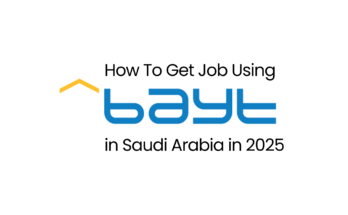Tips for Fresh Job Seekers in Saudi Arabia
Looking for your first job in Saudi Arabia? It can feel like stepping into uncharted territory. Don’t worry—this guide will walk you through every essential tip to navigate the job market in the Kingdom with confidence.

Understanding the Saudi Job Market
Overview of Popular Industries
Saudi Arabia is a thriving hub of opportunities, particularly in industries such as oil and gas, construction, healthcare, education, and IT. The Vision 2030 initiative has also opened doors for emerging sectors like renewable energy, entertainment, and tourism. Understanding which industries align with your skills and interests is the first step to a successful job hunt.
Key Trends in Employment Opportunities
Recent years have seen a surge in demand for technology professionals, project managers, and bilingual candidates fluent in Arabic and English. With the government’s push towards Saudization (Nitaqat system), local talent is prioritized, but there are still plenty of openings for expats in specialized fields.
Preparing Your Job Application
Crafting a Standout CV
Your CV is your first impression. Keep it concise—preferably one to two pages—and highlight your education, skills, and any internships. Use a professional format and tailor it for the Saudi market by including a photo (if culturally appropriate) and contact information like your Iqama number (for residents).
Writing an Impactful Cover Letter
A well-crafted cover letter can set you apart. Address the hiring manager personally and explain how your skills align with the job description. Be professional but also show enthusiasm for the role and company.
Optimizing Your LinkedIn Profile
LinkedIn is widely used by recruiters in Saudi Arabia. Ensure your profile is complete, includes a professional photo, and showcases your achievements. Regularly post updates about your job search or professional accomplishments to remain visible.
Navigating Job Portals and Networks
Top Job Portals in Saudi Arabia
Online platforms like Bayt, Naukrigulf, and Saudi Job Portal are excellent places to start. These websites often feature postings from top companies in various sectors, making them a must-use resource.
Leveraging Recruitment Agencies
Recruitment agencies such as Hays, Michael Page, and GulfTalent specialize in connecting fresh graduates with potential employers. Registering with multiple agencies can boost your chances of finding the right role.
Expanding Your Professional Network
Networking is vital. Attend industry events, join local professional groups on platforms like LinkedIn, and don’t hesitate to reach out to professionals in your field for advice or mentorship.
Understanding Work Culture in Saudi Arabia
Adapting to Local Customs and Expectations
Saudi Arabia has a unique blend of modern corporate practices and deep-rooted traditions. Punctuality, respect for hierarchy, and proper etiquette in business settings are crucial. For example, addressing seniors with appropriate titles like “Mr.” or “Dr.” is customary.
Importance of Language Skills
While English is widely spoken in multinational companies, learning basic Arabic phrases can give you an edge. It not only demonstrates respect for the culture but also broadens your communication skills in everyday scenarios.
Acquiring Relevant Skills and Certifications
Identifying In-Demand Skills
Employers in Saudi Arabia often seek candidates with strong technical skills, problem-solving abilities, and a proactive attitude. Certifications in areas like project management (PMP), data analytics, and digital marketing are especially valued.
Platforms for Online Learning and Certification
Platforms like Coursera, Udemy, and LinkedIn Learning offer affordable courses in high-demand fields. Make use of these resources to upskill yourself and showcase your commitment to continuous learning.
Preparing for Job Interviews
Commonly Asked Questions in Saudi Arabia
Interviews in Saudi Arabia often revolve around your technical skills, past achievements, and ability to adapt to local work culture. Common questions include:
- “What do you know about our company and its goals?”
- “How have you handled challenges in previous roles or internships?”
- “Why do you want to work in Saudi Arabia?”
Prepare thoughtful answers and examples from your experience that align with the company’s values.
Dressing Appropriately for Success
First impressions matter, and dressing professionally is key. For men, a clean suit and tie are standard, while women should opt for formal attire that is modest and culturally respectful. In certain scenarios, wearing the national dress—such as the thobe or abaya—may be appropriate and appreciated.
Following Up After an Interview
Always send a thank-you email within 24 hours of your interview. Express gratitude for the opportunity and briefly reiterate your interest in the position. This small gesture can leave a lasting impression.
Leveraging Social Media for Job Hunting
Building a Professional Online Presence
Your social media profiles often serve as your digital resume. Update your LinkedIn profile with relevant skills, certifications, and achievements. Make sure your other platforms, like Twitter, reflect professionalism and avoid posting controversial or negative content.
Using Twitter and Instagram for Opportunities
Companies in Saudi Arabia frequently post job openings on their Twitter and Instagram pages. Follow businesses in your desired industry, engage with their posts, and be on the lookout for announcements. Social media can be a surprising yet effective job search tool.
Visa and Work Permit Requirements
Applying for a Work Visa
Non-Saudi residents need a work visa to be employed in the Kingdom. Typically, your employer will sponsor your visa and guide you through the application process. Ensure your passport is valid for at least six months and that you have all required documentation, such as your degree certificates and health clearances.
Sponsorship and Residency Considerations
For expats, an Iqama (residency permit) is essential. Your employer usually arranges this. Keep your Iqama updated, as it’s a requirement for accessing various services like banking and renting accommodations.
Staying Persistent and Resilient
Handling Rejections Positively
Job rejections can be discouraging, but they’re also an opportunity to learn. Request feedback whenever possible, refine your approach, and keep applying. Remember, persistence often leads to success.
Setting Realistic Goals and Tracking Progress
Set small, achievable goals, such as applying for a certain number of jobs each week. Track your progress, celebrate milestones, and use this structure to stay motivated during your search.
Financial Planning as a Job Seeker
Managing Expenses During the Job Hunt
Job hunting can be financially draining. Budget wisely by cutting unnecessary expenses and exploring affordable alternatives for essential services like transportation and internet.
Setting a Budget for Relocation
Relocating to Saudi Arabia involves costs for flights, housing, and initial expenses. Research the cost of living in your target city and save accordingly. Consider negotiating a relocation package with your employer.
Expats vs. Local Job Seekers: Key Differences
Unique Challenges for Expats
Expats may face additional hurdles, such as obtaining work visas and adapting to a new culture. However, many multinational companies actively seek foreign talent for specialized roles, making it easier to secure positions in certain industries.
Advantages for Local Candidates
Saudi nationals benefit from government initiatives like the Saudization program, which prioritizes local talent for employment. For locals, leveraging these programs and showcasing a commitment to national development can be advantageous.
Building a Long-Term Career in Saudi Arabia
Growing Within Your Role
Once employed, focus on excelling in your position by taking initiative and building strong relationships with colleagues. Regularly seek feedback from your supervisors to improve and demonstrate your commitment.
Planning for Career Advancement
Set long-term goals and identify pathways for growth within your company. Networking, mentorship, and acquiring advanced certifications can position you for promotions and leadership roles.
Conclusion
Starting a career in Saudi Arabia can be an exciting yet challenging experience. By understanding the job market, tailoring your applications, and embracing the local work culture, you can maximize your chances of success. Stay persistent, proactive, and adaptable, and you’ll find yourself on the path to a rewarding career in the Kingdom.
FAQs
1. What industries are in high demand for fresh job seekers in Saudi Arabia?
Popular industries include oil and gas, IT, healthcare, construction, education, and tourism. Emerging fields like renewable energy and entertainment are also growing rapidly.
2. Do I need to speak Arabic to get a job in Saudi Arabia?
While English is widely used, learning Arabic can be a significant advantage, especially for roles that involve local customers or government entities.
3. How can I network effectively in Saudi Arabia?
Attend industry events, join professional groups on LinkedIn, and connect with colleagues and mentors in your desired field. Personal relationships play a crucial role in Saudi work culture.
4. Are there specific job portals for Saudi Arabia?
Yes, platforms like Bayt, Naukrigulf, and Saudi Job Portal are tailored for the Saudi market and feature job listings across various industries.
5. How can I stay motivated during a prolonged job search?
Set small, achievable goals, track your progress, and focus on self-improvement by acquiring new skills. Remember, persistence and adaptability are key to landing the right role.

